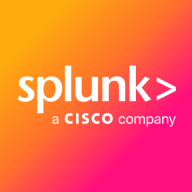

Splunk Enterprise Security and AlienVault OSSIM compete in the SIEM market. Splunk holds the upper hand due to its advanced analytics and scalability, which justify its higher cost for larger enterprises.
Features: Splunk Enterprise Security is known for its capabilities in data ingestion, log management, and rapid search. It also offers flexible integration with multiple data sources. It supports scalability and provides insights through advanced analytics. AlienVault OSSIM offers features such as threat intelligence integration and vulnerability assessment, and is appreciated for its cost-effectiveness.
Room for Improvement: Splunk could enhance its visualization and user interface, and address its high learning curve. Integrations can be complex. AlienVault OSSIM's interface is outdated and it lacks scalability compared to Splunk. Better threat intelligence integration would enhance its capabilities.
Ease of Deployment and Customer Service: Splunk offers flexible deployment options with strong customer support, although it can be complex and requires experienced personnel for optimal deployment. AlienVault OSSIM, primarily on-premises, is noted for ease of community edition deployment, but its technical support is less responsive compared to Splunk.
Pricing and ROI: Splunk has a higher price tag, making it suitable for enterprises with significant security needs, and offers good ROI through advanced features. AlienVault OSSIM, being open-source, provides cost advantages with limited features, appealing to smaller enterprises seeking basic SIEM capabilities. AlienVault's paid version enhances features at a reasonable cost, though opinions on ROI vary.
| Product | Mindshare (%) |
|---|---|
| Splunk Enterprise Security | 7.2% |
| AlienVault OSSIM | 1.6% |
| Other | 91.2% |
| Company Size | Count |
|---|---|
| Small Business | 18 |
| Midsize Enterprise | 9 |
| Large Enterprise | 8 |
| Company Size | Count |
|---|---|
| Small Business | 112 |
| Midsize Enterprise | 50 |
| Large Enterprise | 266 |
AlienVault OSSIM, Open Source Security Information and Event Management (SIEM), provides you with a feature-rich open source SIEM complete with event collection, normalization and correlation. Launched by security engineers because of the lack of available open source products, AlienVault OSSIM was created specifically to address the reality many security professionals face: A SIEM, whether it is open source or commercial, is virtually useless without the basic security controls necessary for security visibility.
Splunk Enterprise Security delivers powerful log management, rapid searches, and intuitive dashboards, enhancing real-time analytics and security measures. Its advanced machine learning and wide system compatibility streamline threat detection and incident response across diverse IT environments.
Splunk Enterprise Security stands out in security operations with robust features like comprehensive threat intelligence and seamless data integration. Its real-time analytics and customizable queries enable proactive threat analysis and efficient incident response. Integration with multiple third-party feeds allows detailed threat correlation and streamlined data visualization. Users find the intuitive UI and broad compatibility support efficient threat detection while reducing false positives. Despite its strengths, areas such as visualization capabilities and integration processes with cloud environments need enhancement. Users face a high learning curve, and improvements in automation, AI, documentation, and training are desired to maximize its potential.
What Are the Key Features of Splunk Enterprise Security?In specific industries like finance and healthcare, Splunk Enterprise Security is instrumental for log aggregation, SIEM functionalities, and compliance monitoring. Companies leverage its capabilities for proactive threat analysis and response, ensuring comprehensive security monitoring and integration with various tools for heightened operational intelligence.
We monitor all Security Information and Event Management (SIEM) reviews to prevent fraudulent reviews and keep review quality high. We do not post reviews by company employees or direct competitors. We validate each review for authenticity via cross-reference with LinkedIn, and personal follow-up with the reviewer when necessary.